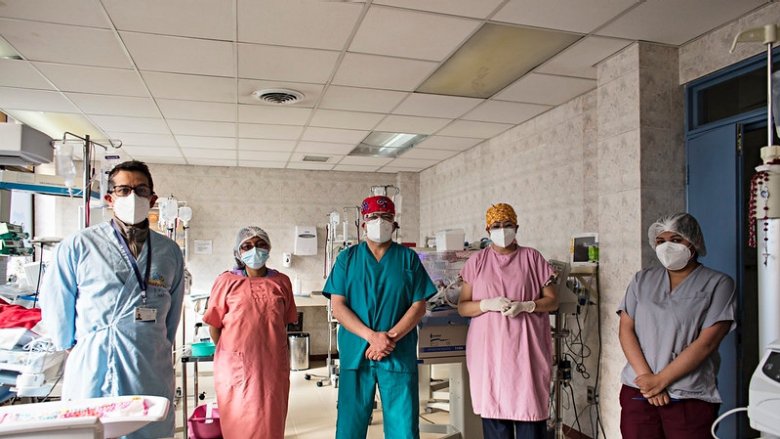From the reopening of schools, to the cessation of preventive isolation and mass vaccination, much has been said about the post-pandemic recovery of countries. However, the system that has not stopped in the last two years, and has undoubtedly been consistently hard hit, is the healthcare system.
Both the shortages in hospitals and health centers, and the quality of the working environment for professionals have been affected by the uncertainty and scarcity of emergency funds. As we move towards the post-pandemic phase, there is an urgent need to position the conversation at the policy level to strengthen the health sector, which urgently needs a cure.
In this interview, Jeremy Veillard, Senior Health Specialist for the Latin America and Caribbean region at the World Bank explains the situation of post-pandemic health systems and the lessons to be taken into account in the long term in the region.
Question. What have been the consequences of the pandemic for the Latin American and Caribbean health systems?
Answer. The pandemic had devastating consequences for the Latin American and Caribbean health systems in 2020, with some recovery in 2021. Access to essential health services was for the most part disrupted at the start of the pandemic because of the strict isolations in the region, out-of-pocket expenses for accessing health services, the reluctance of persons to seek medical care for infections, and a new secondment of human health care talent to public health and ICUs. The impact of the pandemic on health professionals has been brutal – many became infected or died because of the pandemic, while others are burnt out because of the tremendous work pressure experienced during this period. Also of concern is the disruption or postponement of essential health services: immunization rates for children have declined, people with chronic diseases have been unable to access services, young people are suffering from mental health problems, and access to preventive and screening services has been greatly affected. In the long term, all of this will have repercussions on health systems, in terms of loss of lives and disability, which could have been avoided, and in terms of the impact on health systems’ financial sustainability.
Q. There has been a lot of talk about economic reactivation and the return to schools. What should we expect from health systems in the post-pandemic Latin American region?
A. The pandemic has exposed major gaps in the preparation and response to pandemics, and the need to break away from a chronic lack of investment in public health emergency responses. After the pandemic, it is hoped that governments will make the necessary investments in public health preparation and response, starting with laboratory networks and more solid oversight, investments in the public health labor force, and investments in better information systems to track and adapt to the dynamics of epidemics and future pandemics. Health systems will also have to be strengthened by focusing on more resilient primary health care, capable of assisting with the oversight and response to public health emergencies. Finally, the elusive promise of universal health coverage must be a priority so that governments can offer access to effective, high-quality services to all citizens, especially the most vulnerable, at no cost.
Q. In terms of investment, what should be the priorities for the health systems in this context of recovery and uncertainty?
A. Priority must be given to investments in the recovery of essential health services, such as the vaccination of children, school feeding programs and other nutrition services, planned surgeries that were postponed, and of course, it must be ensured that persons with chronic diseases have access to services to manage their diseases. In addition, governments should invest in better preparation for future pandemics, especially by strengthening their oversight and information systems, and basic public health capacities, including access to strategic inputs, such as vaccines. Finally, there must be investment in high-performance primary health care, focused on prevention and the provision of quality services to citizens when they need it and where they need it.
Q. What lessons has the pandemic taught us and how can we put them into practice in the health systems in the region?
A. We have seen a lot of innovation geared toward improving access to services: for example, Colombia has increased the number of consultations done by telemedicine tenfold during the pandemic. This also applies to other innovations, such as online bank accounts that are offered to the poorest to receive social protection benefits during periods of isolation. Digital transformation remains key in the region, as does the use of technology to improve access to care when needed. However, access to care does not always mean access to quality care, which is what people want. Focusing on leveraging technology to improve the quality of care, especially for the most vulnerable or those living in remote areas, will be essential in the recovery of health systems.

